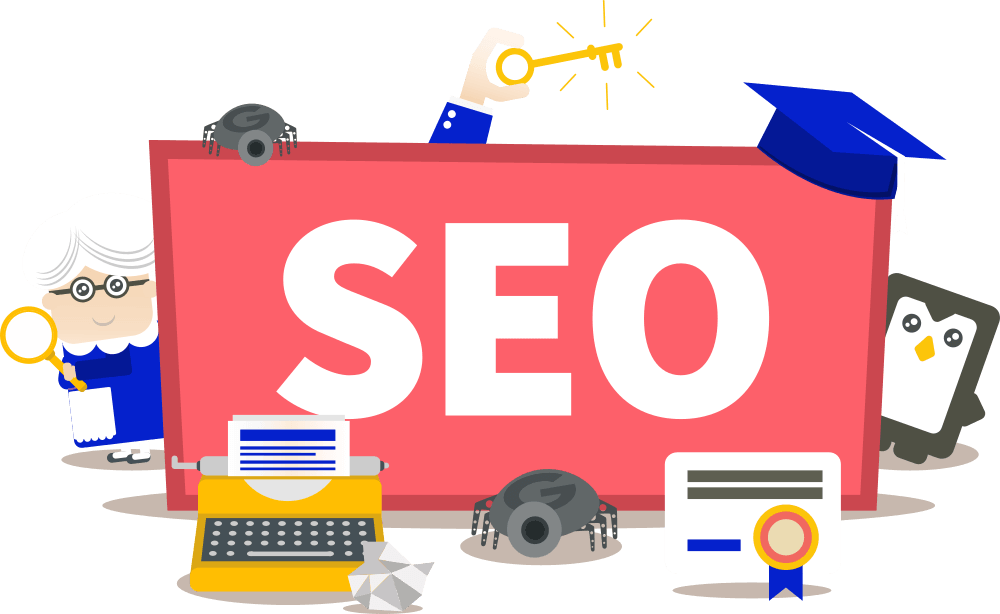How to Optimize Your Content For Search Engines
Optimizing a text for search engines requires editorial and technical practices. Read carefully to learn how to write both for SEO, and (especially) for visitors. Those practices will be presented in this article, and hopefully after reading, optimizing product descriptions, introductory texts about sections of your website and blog posts will seem like easy and even natural activities! If not, you can still work with a St Louis seo company to optimize your website’s content. To optimize texts for search engines:
● avoid meaningless words that will dilute the density of keywords
● avoid metaphors and words with multiple meanings to avoid confusing search engines
● avoid frequent repetition of the same keyword
● enrich your text with specific words about the product or article you are presenting
● respect the semantic order of H1 and H2 tags
● highlight the main ideas with and tags
● avoid using semantic tags for their graphical properties ● icing on the cake: consider formatting the text

Google and other bots don't read like humans
Remember that Googlebot and other search engines will not read the text like a human, but according to their own techniques. They will classify your page in a field of activity and compare your text with other similar pages. Acknowledge that every word has its weight (importance)! You can indicate to the search bots the keywords of your page by adding a piece of code called a tag. By doing that, these words will be rated more highly than similar words that are not found in these tags. For highlighting you can use semantic and tags and even and (non-semantic versions of bold and italics) which are officially recognised by Google. It is recommended to use H2, H3 ... H6 tags (H stands for heading), where you will also use keywords and/or key phrases, respecting the hierarchy of titles and optimization rules.
What to remember about semantics
As promised at the beginning of the article, we will present you some very simple and practical web copywriting techniques to get search engine optimized texts that will help you in improving your website's position in Google indexing:
Build a glossary of terms you will work with Describe the product, its options and functionalities and even describe the services offered related to that product. Set up a glossary of terms in which you can present details of particular options and functionalities. Advantages of this writing technique:
● robots will understand the meaning of your texts more easily
● you will use fewer nonsense words
● your text will have a better concentration of keywords
● readers will understand your presentation more easily

Avoid words with ambiguity and second meanings
Robots are not humans, they cannot understand multi-meaning words or metaphors. For example: re-read your texts and remove expressions foreign to your sector and metaphors. Pay more attention to lexical ambiguity caused by homonyms. Avoid a term that can be interpreted in more than one sense.
Check the tags used
Start by removing misused tags ( , ), usually for their graphic properties.
Now that you've designed the text with the goal of ranking well on a particular keyword, use highlighting, not on the same keyword, but variations of it. Consider using verbs and adjectives from the same family as the keywords. Advantages of this optimisation technique:
● advance in the SERP (Search engine results page) for targeted keywords
● achieve better rankings on keyword variations with lower competition, which will lead to increased traffic
● avoid over-optimization and over-density of important keywords (to avoid ranking in search engines)
Pay attention to the formatting of the text
It's more a tip than a technique, think about the fact that your texts are not written just for search engines. Google doesn't (yet) rank a page by spelling mistakes or text formatting. Use paragraphs of no more than 3 sentences, short sentences of 10 to 20 words, to make these texts easier to read on a computer screen. Readability can be graded according to an algorithm based on criteria such as word or sentence size. Google itself checks whether texts are also readable on mobile devices.
Conclusion
In conclusion, we can say that it is important to optimize a page for a good search engine ranking, but most importantly to keep visitors on the site by presenting them with useful and readable content. Content marketing is the most important aspect of your SEO success. For some years now, these marketing performance criteria have been taken into account by the algorithms used by search engines such as Google. Therefore, we say that it is never enough to have good SEO but you must also communicate with your visitors.





